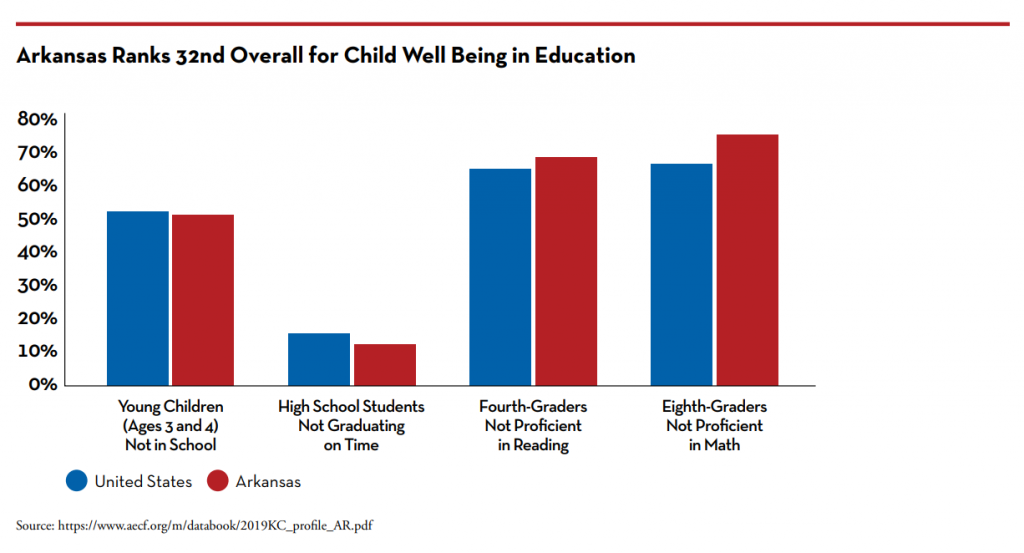Download this handout: K-12 Education
Out-of-School Programs
Before-, after- and summer-school programs are vital to student success because they support academic and emotional development, keep kids safe, improve their long-term outcomes as adults, and provide parents with peace of mind and help them keep their jobs. Arkansas’s existing programs reach a fraction of the children who need them.
Effective and Equitable School Discipline
Children of color face discriminatory school discipline practices, including higher rates of expulsions and out-of-school suspensions for the same offenses as their white peers, that help feed the school-to-prison pipeline. Arkansas also still allows the use of corporal punishment for most students. Other practices, such as restorative justice, are more effective at keeping kids in school, improving behavior, and on track to graduate.
Community Schools Model
Community schools can promote school success by serving as the hub of local neighborhoods/communities. They are characterized by strong partnerships; high parental involvement; and supports for students, including health.
Strong K-12 Public Schools
Despite the 2002 Lake View Supreme Court decision on educational adequacy, major gaps remain in achievement and educational opportunities, as do disparities in quality and school facilities and teacher pay. Recent state investments in public education have been at levels below what many consider to be adequate, and more tax dollars are being shifted to schools that are not accountable to the public, including charter and private schools.
What to Ask Candidates
- What is your position on allowing public tax dollars to fund private schools?
- What would you do to improve access to out-of-school programs and community schools?
- Black students in Arkansas are far more likely to be suspended and punished more harshly for the same infractions than their non-Black peers. How would you address school discipline policies and practices to address this reality?
- What would you do to ensure equitable educational opportunities for low-income students, children of color, English language learners, and students with special needs?
Download this handout: K-12 Education


You must be logged in to post a comment.